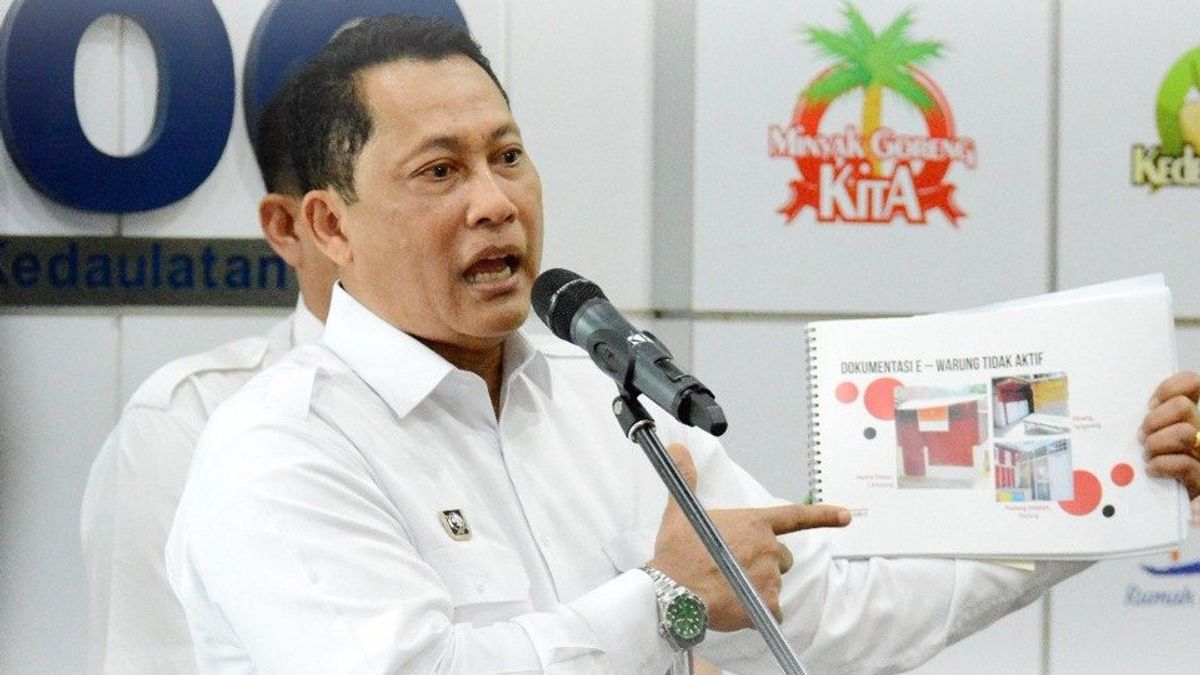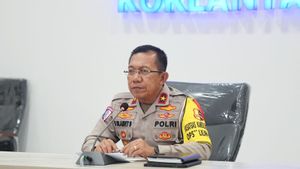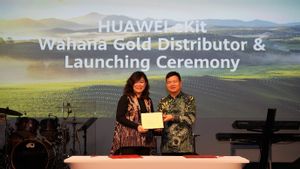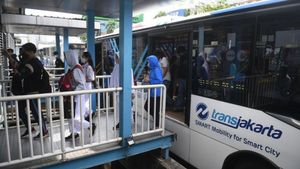JAKARTA - The President Director of Perum Bulog, Budi Waseso, expressed his wish that in the future Indonesia will no longer import food needs. According to him, as an agricultural country, Indonesia should not import.
Buwas, as he is familiarly called, said that Indonesia could meet its food needs from the absorption of farmers. However, Buwas said imports could be decided if in a state of urgency. For example, there is a need for food due to natural disasters.
"Next, we will no longer talk about imports. Food imports should be allergic. Why? Why do agricultural countries import imports. Except for natural disasters, like now there is El Nino, it's beyond our expectations," he said at a press conference at the Bulog Office, Jakarta, Tuesday, December 28.
Buwas said imports in a state of urgency must also be in accordance with the needs. That is, it is not imports on a large scale, which is actually detrimental.
"What can you do (if there is a natural disaster). If you have to import, then import. But imports are according to needs. Not imports, losses become trade," he explained.
Furthermore, Buwas admitted that he had not received any directives to take an import policy for the needs in 2022. "In the future, whether we want to import or not, we don't have any imports until today. Bulog has no assignment until today for next year. Including corn ," he said
Buwas said that until the end of 2021, Bulog consistently carried out its task of securing the price of unhulled rice at the farm level by absorbing farmers' rice reaching 1.2 million tons. That way, Bulog ensures that this year there is no need to bring in Government Rice Reserves (CBP) from abroad.
"This domestic absorption of rice is very helpful for Indonesian farmers who have difficulty selling their rice during the COVID-19 pandemic and also maintains the government's achievement of not importing rice for the last 3 years," he said.
Based on data from the Central Statistics Agency (BPS), said Buwas, the estimated national rice production in the first quarter of 2022 is 11.61 million tons. According to him, Bulog is always ready to reabsorb the production to maintain price stability at the farmer level.
"In addition to cultivating stocks as the government's rice reserves, this activity of absorbing grain/rice for domestic farmers also moves the economy at the farmer level so that it can restore the wheels of the economy in accordance with the direction of President Jokowi during the COVID-19 pandemic," he said.
Throughout 2021, Bulog will also play an important role in maintaining rice price stability at the consumer level by carrying out market operations which are now called KPSH (Supply Availability and Price Stabilization). So far, Bulog has distributed nearly 700 thousand tons of KPSH rice by involving various stakeholders.
Then, to ease the burden of spending on daily basic needs for the community due to the COVID-19 pandemic. The government through the Ministry of Social Affairs and Perum Bulog this year also succeeded in distributing PPKM Rice Aid (BB-PPKM) completely 100 percent to Beneficiary Families (KPM) for a total of 28.8 million KPM throughout Indonesia.
Then, continued Buwas, in the second year of this pandemic and as a form of real commitment the company that creates shared value for the people of Bulog has distributed fortified rice to 7 provinces for 2,150 toddlers to support the government's program to reduce stunting prevalence (short children).
Buwas said Bulog was also quick to respond to national disasters by distributing 8,500 tons of Emergency Response Rice throughout 2021.
The English, Chinese, Japanese, Arabic, and French versions are automatically generated by the AI. So there may still be inaccuracies in translating, please always see Indonesian as our main language. (system supported by DigitalSiber.id)













